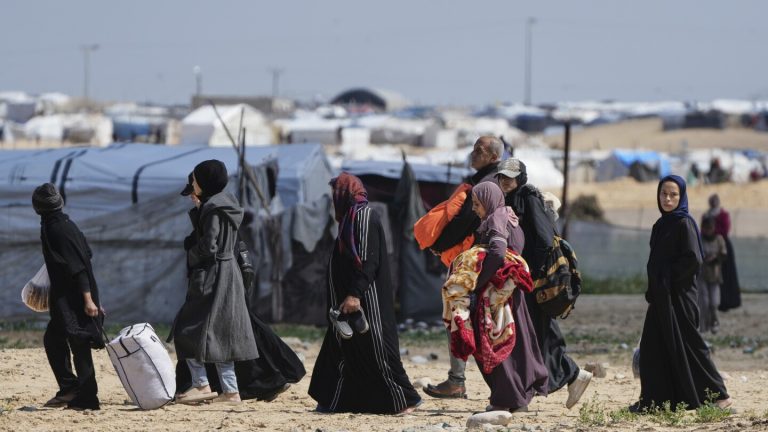Morning breaks in Khan Younis, and the Al-Zurai family wakes in a tent pitched atop the rubble of the cement house they once called home. The tiles that once lined their floor now rest unevenly on the sandy ground, outlining the space of a makeshift outdoor kitchen.
“Today, God gave us cans, so we’re cooking them for the children,” says Suad Al-Zurai, 57, as she stirs canned beans in a pot over a small flame. It is the 558th day of the war. The children, like the adults, are hungry—coated in dust, haunted by grief, and facing yet another day of trying to survive among the ruins of Gaza.
An NBC News crew spent a full day with the Al-Zurai family, from morning to nightfall, to witness how they—and thousands of other families across the enclave—are living after the collapse of the ceasefire and the start of an Israeli blockade in early March, which halted the entry of food, water, medicine, and other essential supplies.
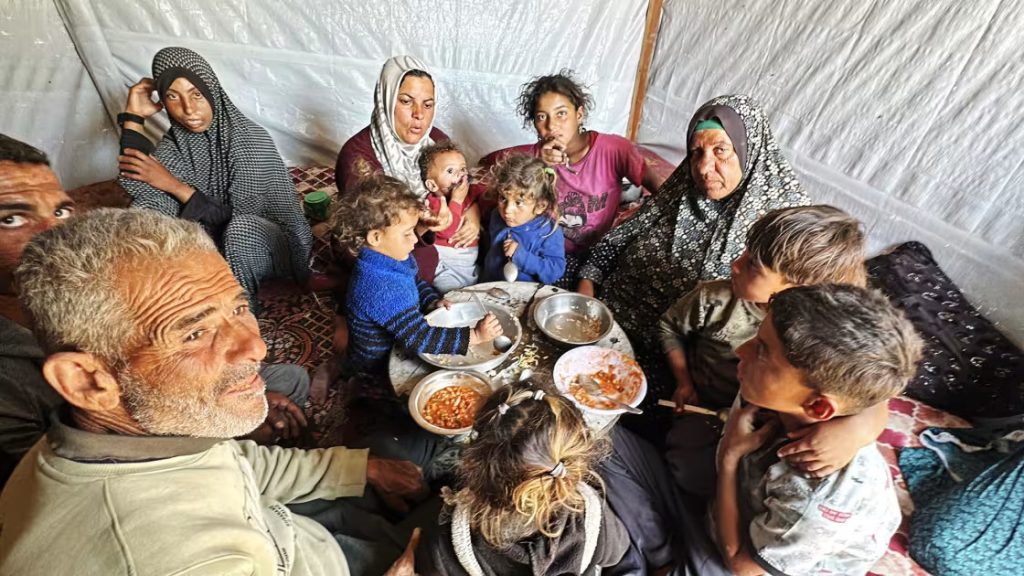
Sixteen members of the Al-Zurai family gather around a single pot of beans—eight of them are children. There should be more, Suad says. One of her sons was killed in an airstrike, along with two of her grandchildren. Another son, Khaled Al-Zurai, has been missing for days after an explosion that killed his own son. Suad now cares for Khaled’s wife, who is battling cancer, and their four surviving children. Her third son, Hamed, and his four children also live with her in the tent. Other relatives have been displaced to different parts of Gaza.
Suad stirs the pot under the harsh glare of the sun, her exhaustion written across her face. For her, survival no longer feels like living.
“We all die one hundred times, every day,” she says. “We die one hundred times daily from fear and horror.”
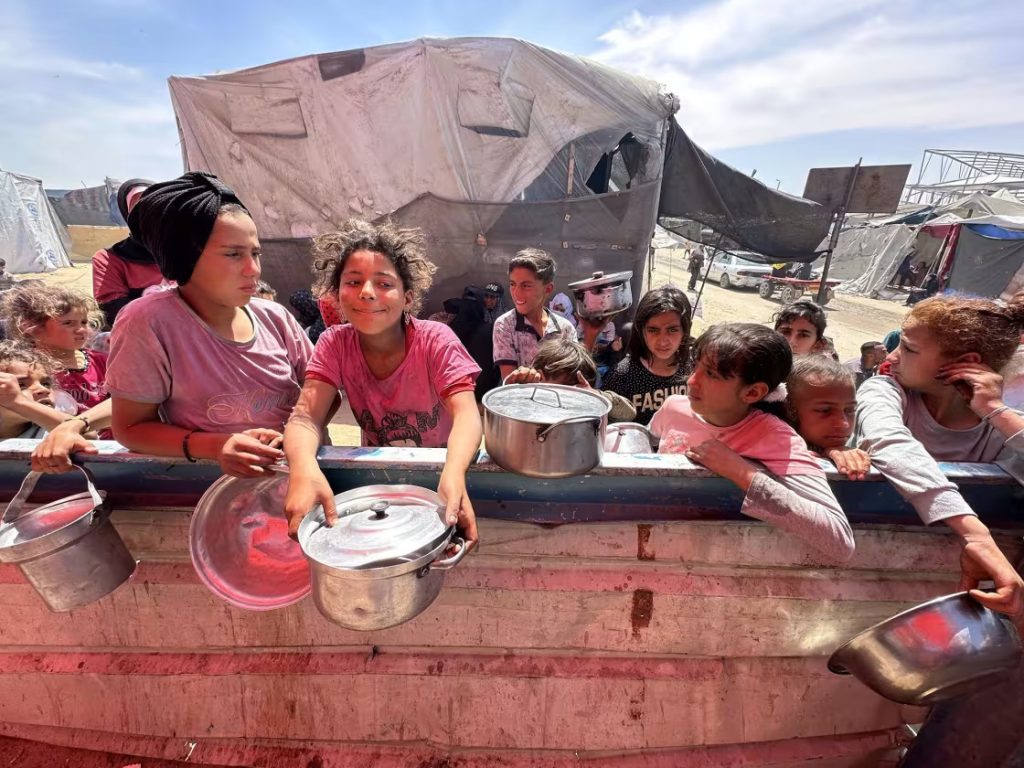
Suad’s lost loved ones are among more than 51,000 people killed in Gaza since Israel began its offensive following the Hamas-led attacks of October 7, 2023, according to the local health ministry. Among the dead are thousands of children.
The war began after militants launched a surprise attack on southern Israel, killing around 1,200 people and taking approximately 250 hostages—an escalation in a conflict that has stretched on for decades.
For the Al-Zurai family, the rhythm of the day is shaped by constant worry: how to find food, water, and medicine. Conversations revolve around survival, and searching for essentials fills the hours. Aid groups have warned that supplies are dwindling fast.
At one point, 3-year-old Anwar, Hamed Al-Zurai’s daughter, collapses to the ground in tears, begging for rice. But there is none left to give her.
“My children are always crying,” Hamed says. “They want to eat. And I tell them, ‘How? There are no open crossings, so how can I get you food, my love?’”
Before the war, the children spent their mornings in school. Now, those hours are consumed by the search for food and water.
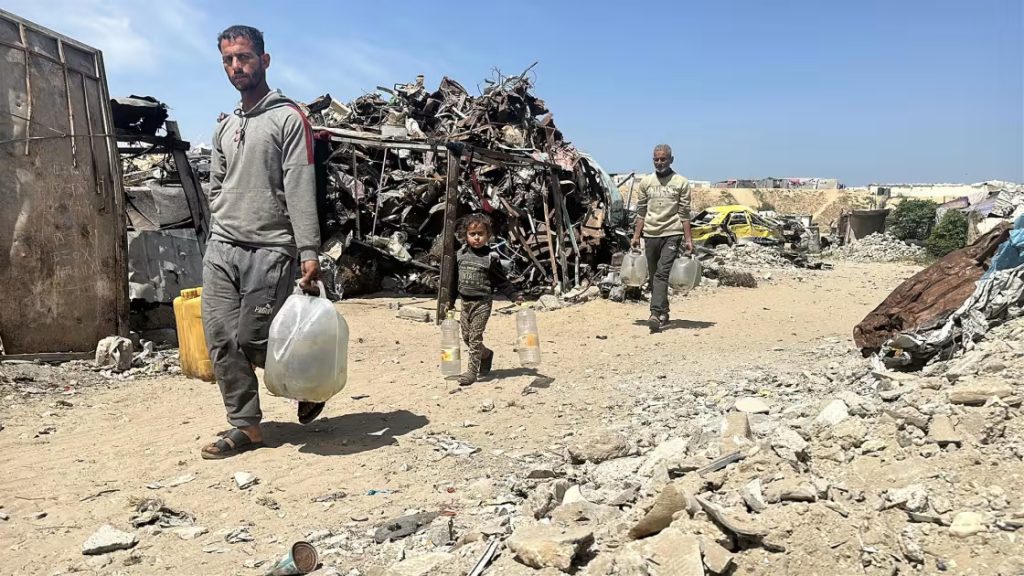
Despite their worry for their missing father, Khaled Al-Zurai’s children—13-year-old Mohammed and 12-year-old Suad—pick up their pots and pans, preparing to head to the soup kitchen. They are joined by their 7-year-old cousin, Shadi, and they lead NBC News’ crew on the 30-minute walk through the rubble of their surroundings.
At the soup kitchen, a crowd of children, along with a few women and men, are already gathered, waiting for food under the scorching sun. Suad, the younger of the two siblings, stands quietly with her empty pot in hand, gazing off into the distance, a mix of boredom and exhaustion on her face. Eventually, she joins her brother and cousin, seeking respite in a small ditch for shade, while they wait their turn once more.
Rice is being served that day. After an hour-long wait, they finally fill their pots and begin the long walk back to their tent.
Meanwhile, Hamed and his young daughter Anwar are out gathering water for the family. Little Anwar walks briskly, her tiny body carrying two large water jugs, each nearly half her size, as she does her part in the fight for survival.
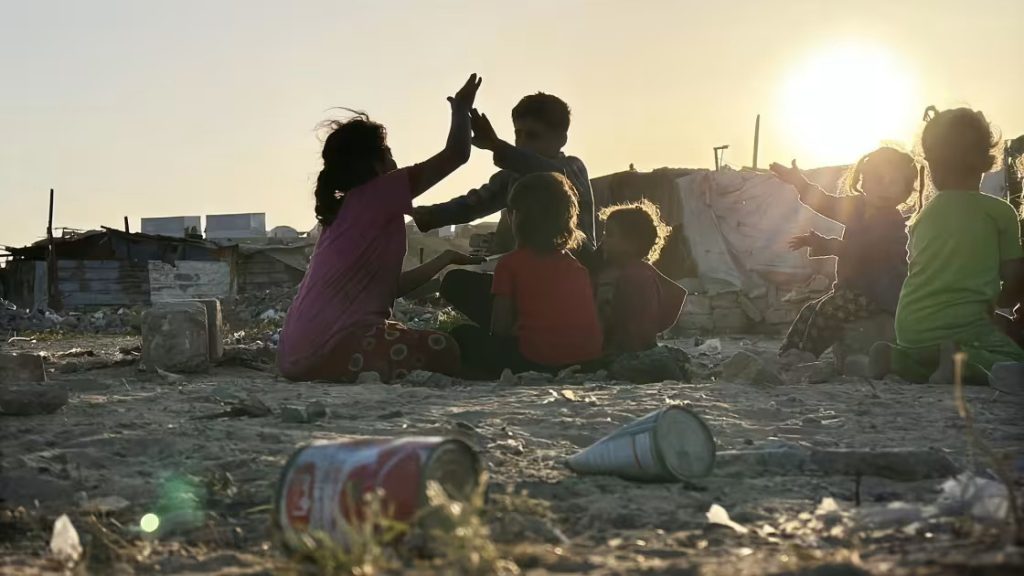
Before the war, Hamed Al-Zurai relied on a cart and donkey to provide transportation services, earning just enough to support his family. But when the donkey died and the cart was lost in the conflict, Hamed found himself without a means to make a living. Now, unable to afford food or water, the family depends on the increasingly scarce aid that trickles in.
“The situation is dire,” he says, his voice heavy with the weight of the reality they face.
Yet, even in the midst of such overwhelming darkness, there are fleeting moments of light for the Al-Zurai family. As they gather together in their tent, there are smiles shared over the hard-won meal they’ve managed to secure.
After they eat, Mohammed hands his younger siblings and cousins old rubber tires to play with. Anwar’s face lights up as she rolls one across the sandy ground, her laughter a rare sound amid the hardships they endure.
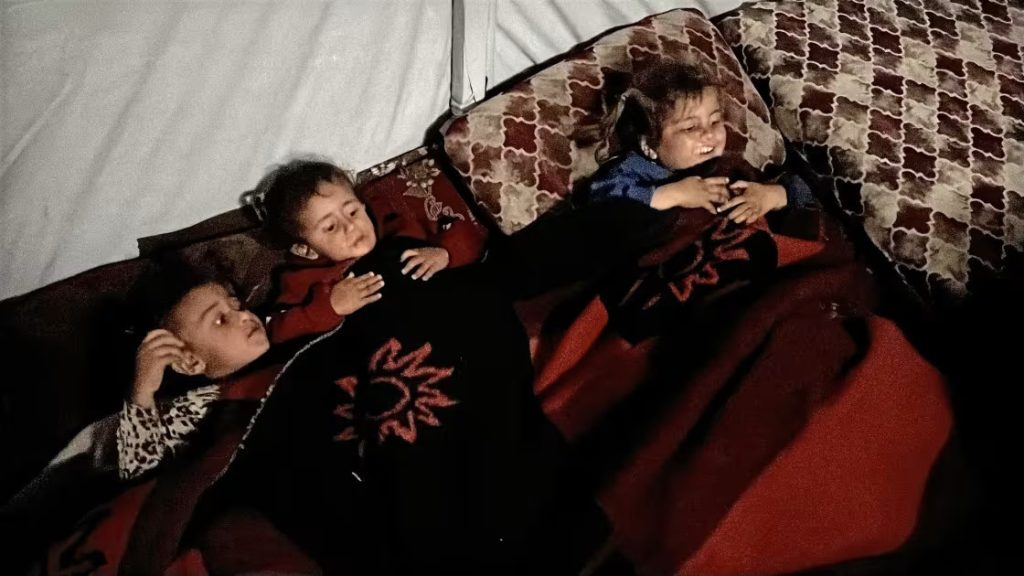
As the sun sets, the children gather outside in a small circle, laughing as they play hand-clapping games. In that brief moment, they look like children anywhere in the world—carefree, joyful, and full of life.
But soon, they return to their makeshift tent, where they sit down to a modest dinner of rice and beans. Afterward, they settle in for the night, huddled together on the ground beneath their blankets.
“We hate the nighttime,” Suad Al-Zurai says quietly. And then, almost as an afterthought, she adds, “the daytime, too.”

